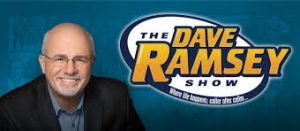In the ever-evolving landscape of personal finance, Dave Ramsey’s financial advice has become a beacon of hope for many struggling with money management. Yet, for Millennials and Gen Z, his traditional approach often seems like a relic from a different economic era.
This disconnect has sparked countless debates about the relevance of Dave Ramsey’s financial advice in today’s complex financial world.
As young professionals navigate unprecedented economic challenges from crushing student loan debt to a gig economy that defies traditional employment models the need for adaptive financial strategies has never been more critical.
This article aims to dissect Dave Ramsey‘s financial advice, separating myth from reality, and offering a nuanced perspective that speaks directly to the financial realities of Millennials and Gen Z.
Table of Contents
Understanding Dave Ramsey’s Core Financial Principles
Dave Ramsey’s financial philosophy is built on a foundation of straightforward, no-nonsense money management principles that have helped millions escape financial distress.
At its core, his approach centers on several key strategies that challenge conventional thinking about money, debt, and personal finance.
Key Principles of Dave Ramsey Financial Advice:
- Aggressive debt elimination
- Building a robust emergency fund
- Embracing a cash-only lifestyle
- Conservative and disciplined investment approach
- Strict budgeting and financial self-control
These principles might sound simple, but they represent a radical departure from the credit-dependent lifestyle many young people have grown up witnessing.
Ramsey’s advice cuts through the noise, offering a clear path to financial freedom that relies on personal responsibility and disciplined decision-making.
Myth #1 – Dave Ramsey’s Advice is One-Size-Fits-All
The criticism that Dave Ramsey’s financial advice is too generic is perhaps the most common complaint among younger generations.
While his core principles are universal, the application requires careful consideration of the unique financial challenges facing Millennials and Gen Z.
Generational Financial Challenges:
- Unprecedented student loan debt
- Volatile job markets and gig economy employment
- Higher cost of living compared to previous generations
- Technological disruption of traditional career paths
- Changing economic landscape
| Generation | Unique Financial Challenges | Average Debt | Income Instability |
| Millennials | Student Loans, Housing Costs | $38,877 | High |
| Gen Z | Educational Expenses, Digital Economy | $20,900 | Moderate |
While Ramsey’s advice isn’t a perfect fit for every situation, the core principles of financial discipline remain remarkably relevant. The key is adaptation—taking his fundamental strategies and customizing them to individual circumstances.
Myth #2 – Cash-Only Living is Impossible in the Digital Age
In an era of digital payments and cryptocurrency, Ramsey’s cash-only approach might seem outdated. However, the principle behind this strategy—mindful spending and avoiding debt—remains powerful and adaptable.
Practical Approaches to Cash-Based Budgeting:
- Utilizing digital envelope budgeting apps
- Implementing virtual cash spending limits
- Using prepaid debit cards with fixed budgets
- Creating digital tracking systems for cash-like discipline
- Balancing digital convenience with spending awareness
Modern technology has actually made cash-like budgeting more accessible. Apps like YNAB (You Need A Budget) and Mint allow users to implement Ramsey-inspired budgeting techniques with digital tools, proving that the spirit of his advice can thrive in the digital age.
Reality Check – The Debt Snowball Method
One of Dave Ramsey’s most famous strategies, the debt snowball method, offers a psychologically powered approach to debt elimination. Unlike traditional methods that focus solely on mathematical optimization, this approach prioritizes psychological wins.
Debt Snowball Implementation:
- List all debts from smallest to largest
- Make minimum payments on all debts
- Apply extra funds to the smallest debt
- Celebrate each debt elimination as a milestone
- Gain momentum through psychological victories
Case Study: Sarah, a 28-year-old marketing professional, used the debt snowball method to eliminate $32,000 of debt in just 2.5 years. By focusing on smaller debts first, she maintained motivation and ultimately achieved complete debt freedom.
Investing Advice – Conservative vs. Aggressive Approaches
Ramsey’s investment advice often draws criticism for being too conservative. However, his fundamental approach of prioritizing long-term stability over short-term gains carries significant merit.
Investment Strategy Considerations:
- Focusing on index funds
- Avoiding high-risk investments
- Prioritizing retirement accounts
- Maintaining a long-term perspective
- Balancing risk and potential returns
While young investors might be tempted by high-risk strategies, Ramsey’s advice encourages a more measured approach that protects wealth while allowing for steady growth.
Emergency Fund Strategies for Unstable Job Markets
In an era of economic uncertainty, Ramsey’s emphasis on emergency funds has never been more critical. For Millennials and Gen Z, who face more volatile employment landscapes, a robust emergency fund is not just a recommendation—it’s a necessity.
Emergency Fund Best Practices:
- Calculate 3-6 months of living expenses
- Keep funds in easily accessible accounts
- Continuously rebuild after use
- Adjust based on income and job stability
- Consider multiple income streams
| Income Level | Recommended Emergency Fund | Timeframe to Build |
| $30,000/year | $9,000 | 12-18 months |
| $50,000/year | $15,000 | 12-24 months |
| $75,000/year | $22,500 | 18-30 months |
Side Hustles and Additional Income Streams
Ramsey’s financial advice increasingly recognizes the importance of multiple income sources, especially for younger generations navigating an unpredictable economic landscape.
Side Hustle Strategies:
- Leverage digital platforms for freelancing
- Develop skills with high market demand
- Create passive income opportunities
- Balance side hustles with primary career
- Invest side hustle earnings strategically
The digital economy has created unprecedented opportunities for generating additional income, aligning perfectly with Ramsey’s philosophy of proactive financial management.
Mental Health and Financial Wellness
Beyond spreadsheets and budgets, Dave Ramsey’s financial advice touches on a crucial aspect often overlooked: the psychological impact of financial stress.
Holistic Financial Wellness Approach:
- Recognize financial anxiety
- Develop positive money mindsets
- Seek professional financial counseling
- Practice financial self-care
- Build confidence through financial education
Financial health is intrinsically linked to mental health, and Ramsey’s approach encourages a comprehensive view of personal finance that goes beyond mere numbers.
Conclusion
Dave Ramsey’s financial advice, while not a perfect blueprint, offers a robust framework for financial management that remains remarkably relevant for Millennials and Gen Z. The key is not blind adherence but thoughtful adaptation.
By understanding the core principles—debt elimination, disciplined spending, strategic saving, and long-term thinking—young professionals can create personalized financial strategies that work for their unique circumstances.
Skale MoneyKey Takeaways
- Financial principles are adaptable, not rigid
- Personal responsibility is the cornerstone of financial success
- Continuous learning is crucial in personal finance
- Mental and financial health are interconnected
- Technology can support, not replace, sound financial principles
Frequently Asked Questions (FAQ)
Is Dave Ramsey’s advice still relevant for Millennials and Gen Z?
Yes, while some specifics may need adaptation, his core financial principles remain powerful and relevant.
How can I start implementing Ramsey’s financial advice with limited income?
Start small—create a budget, track expenses, and focus on eliminating debt, even if you can only make minimal progress.
What are the biggest financial challenges for younger generations?
Student loan debt, unstable job markets, high living costs, and limited financial education.
How do I balance debt reduction with investing?
Follow Ramsey’s debt snowball method while simultaneously contributing to retirement accounts, focusing on low-cost index funds.
Can I follow Ramsey’s advice if I have an irregular income?
Yes, by creating a more flexible budget, maintaining a larger emergency fund, and prioritizing consistent debt reduction.
![]()




